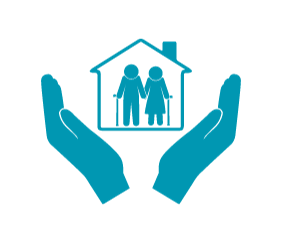Loneliness can be an overwhelming and isolating experience, but you are not alone in facing it. This article aims to provide you with valuable insights and practical strategies to cope with extreme loneliness. By understanding the root causes of loneliness, learning to build meaningful connections, and developing self-care practices, you can take proactive steps towards overcoming the emotional challenges that come with feeling alone. Together, we will explore different avenues for finding companionship and support, helping you navigate through this difficult period with resilience and grace.
Understanding Extreme Loneliness
Loneliness is a universal human experience that can be particularly distressing when it reaches extreme levels. It is important to have a clear understanding of what extreme loneliness entails in order to address it effectively. Extreme loneliness refers to a profound and pervasive sense of isolation and disconnection from others, accompanied by a deep sense of emptiness and longing for meaningful connection.
Definition of Loneliness
Loneliness is not simply about being physically alone, but rather about feeling emotionally disconnected from others. It is a subjective experience that can be influenced by various factors, including the quality and quantity of relationships, personal circumstances, and individual personality traits. Extreme loneliness differs from occasional feelings of solitude, as it persists for prolonged periods and significantly impacts overall well-being.
Types of Loneliness
Loneliness can manifest in different forms, depending on the underlying causes and circumstances. Social loneliness refers to the absence of social connections and a lack of interpersonal relationships. Emotional loneliness, on the other hand, refers to a lack of deep emotional connections and intimacy. Situational loneliness arises due to life circumstances such as moving to a new place or experiencing a breakup. Lastly, existential loneliness stems from a sense of disconnectedness from life’s purpose and meaning.
Causes of Extreme Loneliness
Extreme loneliness can result from a variety of factors. Major life transitions such as relocation, retirement, or bereavement can lead to a sense of isolation. Physical or mental health conditions that limit social interactions can also contribute to extreme loneliness. Additionally, social media and technology, while designed to connect people, can ironically contribute to feelings of loneliness and isolation, as they often facilitate shallow and superficial connections.
Effects of Extreme Loneliness
The impact of extreme loneliness goes beyond mere feelings of sadness and isolation. It can have profound consequences on both physical and mental health, as well as on social relationships.
Physical Health Implications
Studies have shown a strong correlation between extreme loneliness and negative physical health outcomes. Individuals experiencing extreme loneliness are more vulnerable to conditions such as heart disease, high blood pressure, weakened immune system, and obesity. The stress associated with extreme loneliness can also lead to disrupted sleep patterns and increased risk of substance abuse.
Mental Health Consequences
The toll of extreme loneliness on mental health is significant. It often leads to the development or exacerbation of mental health disorders such as depression and anxiety. Feelings of hopelessness and despair can become overwhelming, affecting daily functioning and overall quality of life. In severe cases, extreme loneliness may even contribute to suicidal ideation.
Impact on Social Relationships
Ironically, extreme loneliness can hinder the ability to form and maintain healthy social relationships. The intense longing for connection can make individuals come across as needy or desperate, deterring potential friendships and relationships. Moreover, the social withdrawal often associated with extreme loneliness can further isolate individuals, perpetuating the cycle of loneliness.
Recognizing Signs of Extreme Loneliness
In order to effectively address extreme loneliness, it is crucial to be able to recognize its signs and symptoms. While it may vary from person to person, there are some common indications to be aware of.
Feelings of Isolation
One of the most prominent signs of extreme loneliness is a persistent sense of isolation and disconnection from others. This feeling extends beyond physical solitude and involves a deep-seated longing for meaningful connection and intimacy.
Persistent Sadness and Despair
Individuals experiencing extreme loneliness often report overwhelming feelings of sadness, despair, and emptiness. This emotional state may persist for prolonged periods and can significantly impact overall mood and well-being.
Withdrawal from Social Activities
A key indicator of extreme loneliness is the withdrawal from social activities and a decrease in social interactions. Individuals may avoid social gatherings, isolate themselves at home, and exhibit a lack of interest or motivation to engage with others.
Seeking Professional Help
When dealing with extreme loneliness, seeking professional help can be instrumental in finding effective strategies for coping and overcoming this challenging experience.
Consulting a Therapist
Working with a therapist or counselor specializing in loneliness and mental health can provide valuable guidance and support. A therapist can help identify underlying causes, develop coping mechanisms, and provide a safe space for processing emotions and exploring potential solutions.
Joining Support Groups
Support groups specifically focused on loneliness can offer a sense of belonging and understanding. These groups provide an opportunity to connect with others who share similar experiences, providing validation and support. Sharing stories and hearing others’ perspectives can be empowering and reassuring.
Considering Medication
In some cases, medication may be necessary to alleviate symptoms of extreme loneliness when it coexists with other mental health disorders. Antidepressant or anti-anxiety medications can help manage symptoms and provide a foundation for addressing underlying issues.
Developing Coping Mechanisms
While seeking professional help is important, there are also several coping mechanisms that individuals can practice on their own to manage extreme loneliness effectively.
Practicing Self-Care
Engaging in self-care activities can significantly improve overall well-being and reduce feelings of extreme loneliness. This can include activities such as exercise, getting sufficient sleep, maintaining a healthy diet, and engaging in activities that bring joy and relaxation.
Engaging in Hobbies and Interests
Pursuing hobbies and interests can serve as a valuable distraction from loneliness and provide a sense of purpose and fulfillment. Whether it’s painting, gardening, dancing, or playing a musical instrument, engaging in activities that bring joy and fulfillment can help alleviate feelings of isolation.
Forming Meaningful Connections
Forming meaningful connections with others is essential for combating extreme loneliness. This can involve reaching out to old friends, joining clubs or organizations aligned with personal interests, or actively seeking opportunities to meet new people. Building genuine connections based on shared values and interests can provide a sense of belonging and fulfillment.
Exploring Therapeutic Approaches
Therapeutic approaches can be highly beneficial in addressing extreme loneliness and developing healthier thought patterns and coping strategies.
Cognitive-Behavioral Therapy (CBT)
CBT is a widely used therapeutic approach that focuses on identifying and changing negative thought patterns and behaviors. Through CBT, individuals can challenge and reframe distorted beliefs related to loneliness, develop healthy coping mechanisms, and build resilience.
Dialectical Behavioral Therapy (DBT)
DBT combines cognitive-behavioral techniques with mindfulness and acceptance strategies. It can help individuals regulate emotions, improve interpersonal skills, and manage distressing experiences. DBT is particularly useful for individuals experiencing extreme loneliness combined with other mental health challenges.
Mindfulness and Meditation
Practicing mindfulness and meditation can cultivate a sense of self-awareness and calmness, reducing the intensity of overwhelming feelings associated with extreme loneliness. Mindfulness involves focusing on the present moment without judgment, while meditation provides an opportunity for introspection and emotional regulation.
Utilizing Technology for Connection
While technology can contribute to feelings of loneliness, it can also be harnessed as a tool for connection, especially during challenging times when in-person interactions are limited.
Virtual Communities and Social Networks
Virtual communities and social networks provide platforms for connecting with like-minded individuals, sharing experiences, and offering support. Engaging in online communities related to personal interests can facilitate connections and combat isolation.
Online Support Groups and Forums
Similar to in-person support groups, online support groups and forums provide outlets for individuals to share their experiences, provide and receive support, and gain insights from others who have endured extreme loneliness. These platforms offer a sense of community and validation.
Video Calls and Chat Applications
Video calls and chat applications enable individuals to maintain meaningful connections with loved ones, even when physically apart. Utilizing these technologies can help bridge the gap caused by distance and provide a sense of closeness and emotional connection.
Building a Support Network
Building a strong support network is crucial for combating extreme loneliness and creating a sense of belonging and connection.
Reconnecting with Old Friends
Reaching out to old friends can be an effective way to restore connection and revive relationships. Scheduling catch-ups or engaging in shared activities can reignite bonds and provide a support network during times of extreme loneliness.
Initiating New Friendships
Actively seeking opportunities to make new friends can help alleviate feelings of extreme loneliness. Joining clubs, attending social events, or volunteering for community activities are all avenues for meeting new people and forming new connections.
Nurturing Relationships
Maintaining existing relationships and investing time and effort into nurturing them is crucial for combating extreme loneliness. Regularly engaging in meaningful communication and spending quality time with loved ones can strengthen connections and provide a support system during challenging times.
Engaging in Meaningful Activities
Engaging in meaningful activities is an effective way to counter extreme loneliness and cultivate a sense of purpose and fulfillment.
Volunteering and Helping Others
Volunteering for causes that resonate with personal values can provide a sense of purpose and fulfillment. Contributing to the well-being of others not only helps combat extreme loneliness but also fosters a sense of connection and community.
Pursuing Personal Goals and Ambitions
Setting and pursuing personal goals and ambitions can provide a sense of direction and fulfillment. Whether it involves further education, career development, or creative pursuits, having a purpose-driven life can help combat extreme loneliness by providing focus and a sense of accomplishment.
Exploring New Hobbies and Interests
Trying new hobbies and interests opens up opportunities to meet new people and discover passions. Exploring new activities not only alleviates extreme loneliness but also provides a sense of excitement and personal growth.
Cultivating Self-Compassion
Cultivating self-compassion is an integral part of overcoming extreme loneliness. Being kind to oneself and practicing self-care can help counter feelings of inadequacy and self-blame often associated with loneliness.
Practicing Mindfulness
Practicing mindfulness and self-compassion can help individuals be present and accept their emotions without judgment. It involves acknowledging feelings of loneliness and responding with kindness and understanding.
Accepting Imperfections
Nobody is perfect, and accepting that imperfections are a natural part of being human can alleviate feelings of loneliness and self-criticism. Embracing personal flaws and understanding that they do not define self-worth can foster self-compassion.
Being Kind to Yourself
Treating oneself with kindness and gentleness is essential when dealing with extreme loneliness. Engaging in positive self-talk, practicing self-care, and prioritizing personal well-being are all acts of self-compassion that can counter feelings of loneliness and enhance overall well-being.
In conclusion, extreme loneliness can be a debilitating experience that affects all aspects of a person’s life. By understanding the various causes and effects of extreme loneliness and utilizing a combination of professional help, coping mechanisms, therapeutic approaches, technology, building a support network, engaging in meaningful activities, and cultivating self-compassion, individuals can navigate and overcome extreme loneliness, ultimately finding connection, fulfillment, and well-being. Remember, you are not alone, and there are resources and strategies available to help you through this challenging experience.


